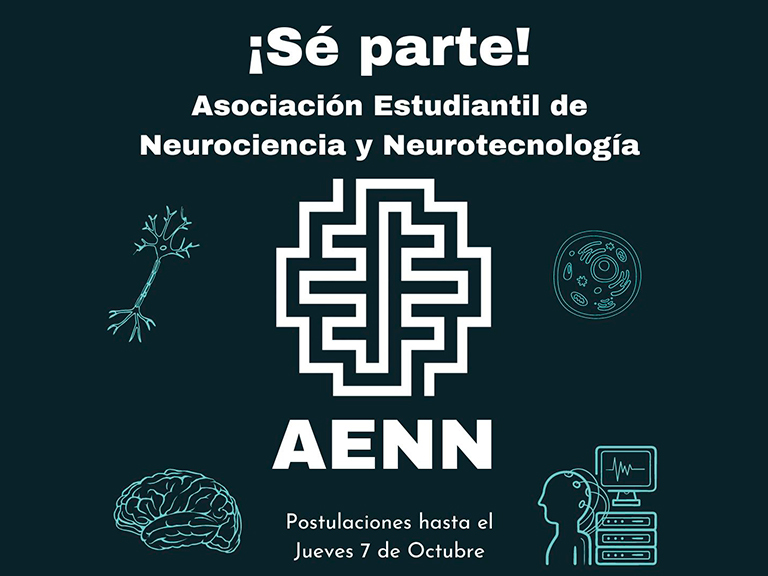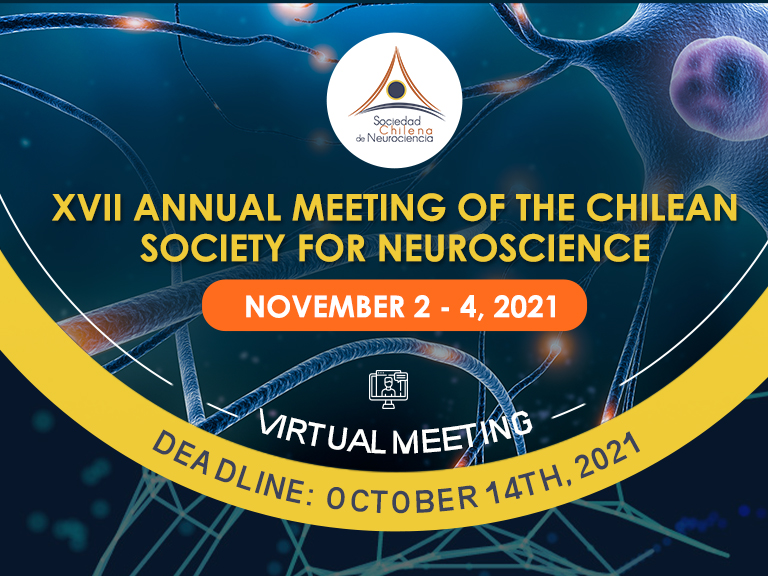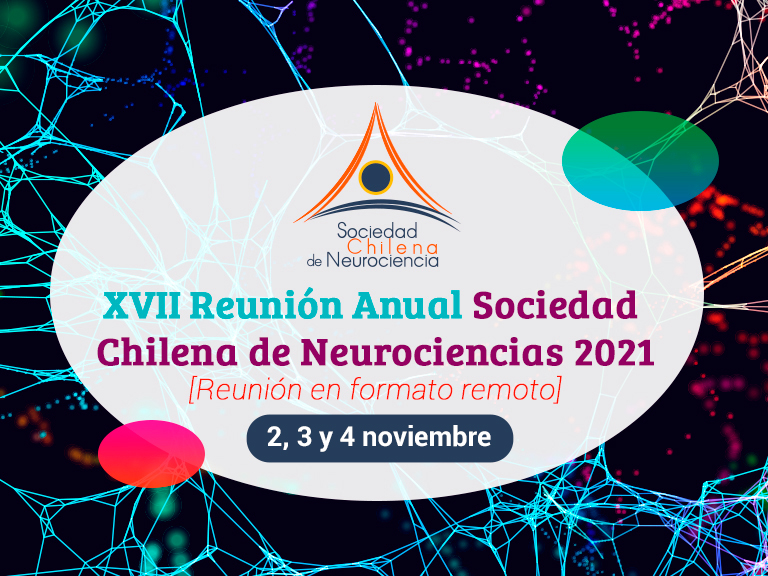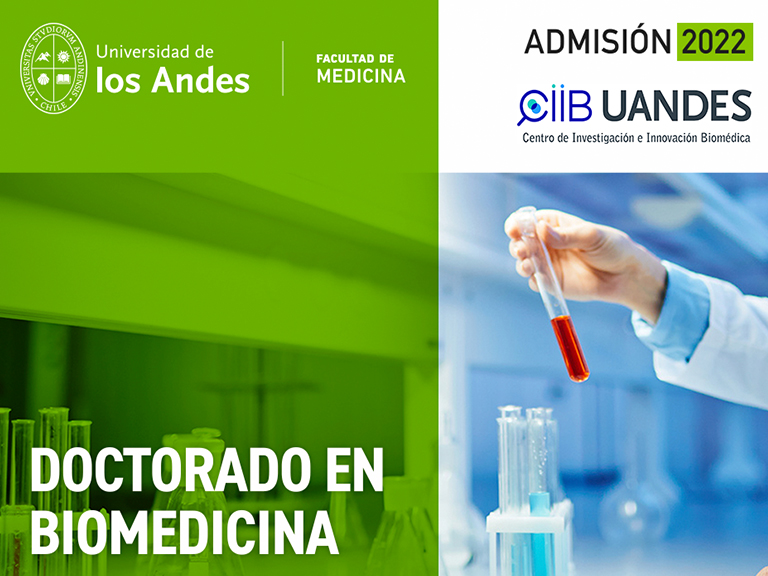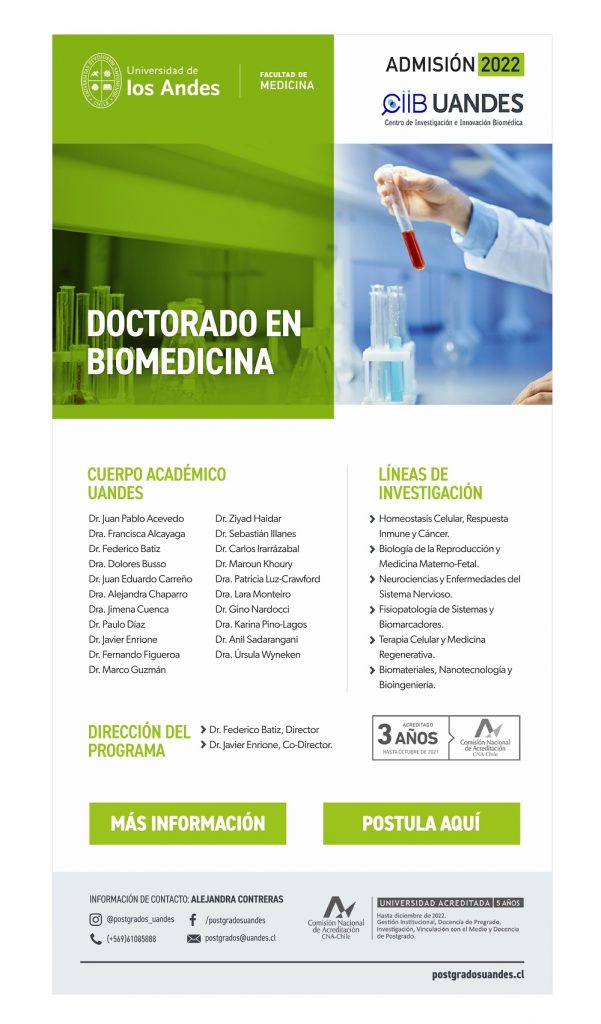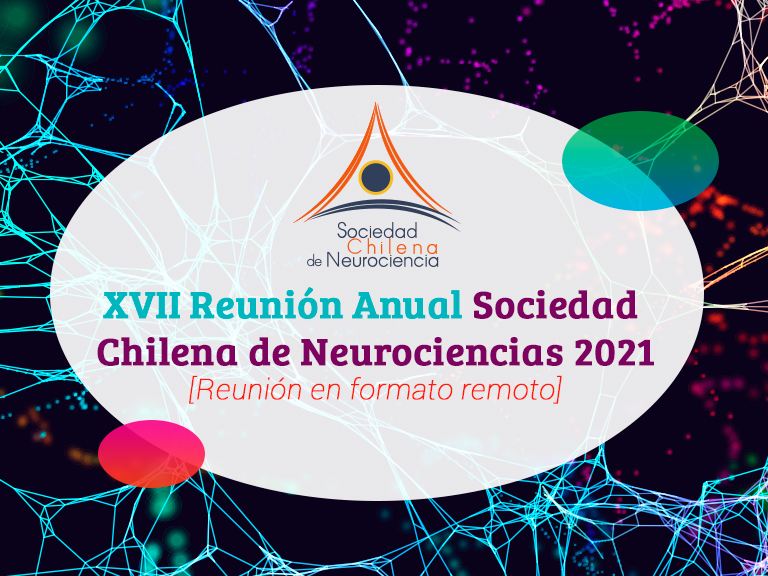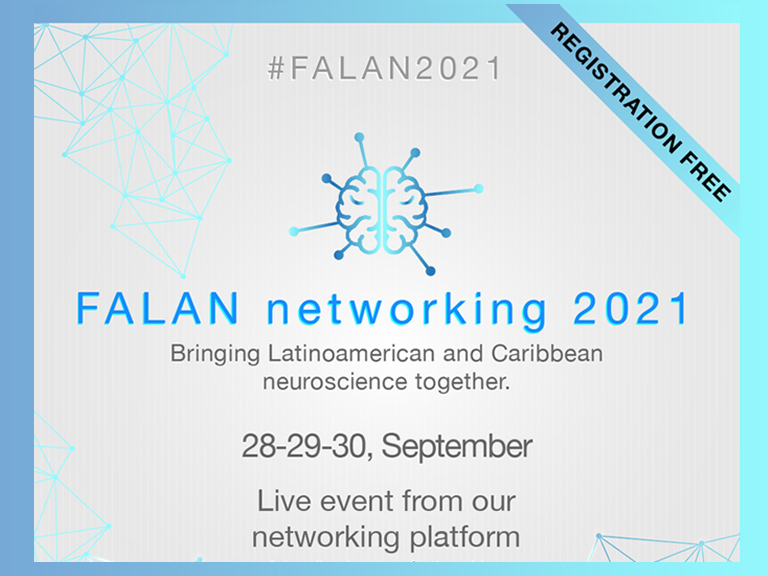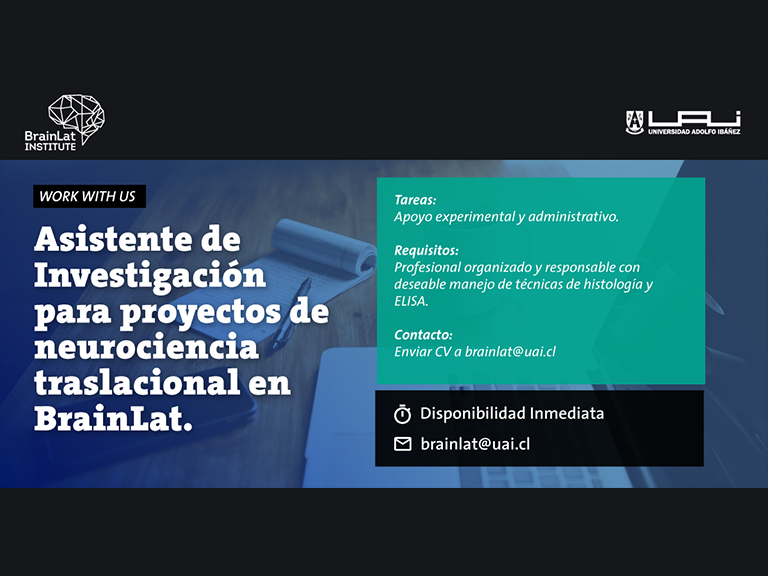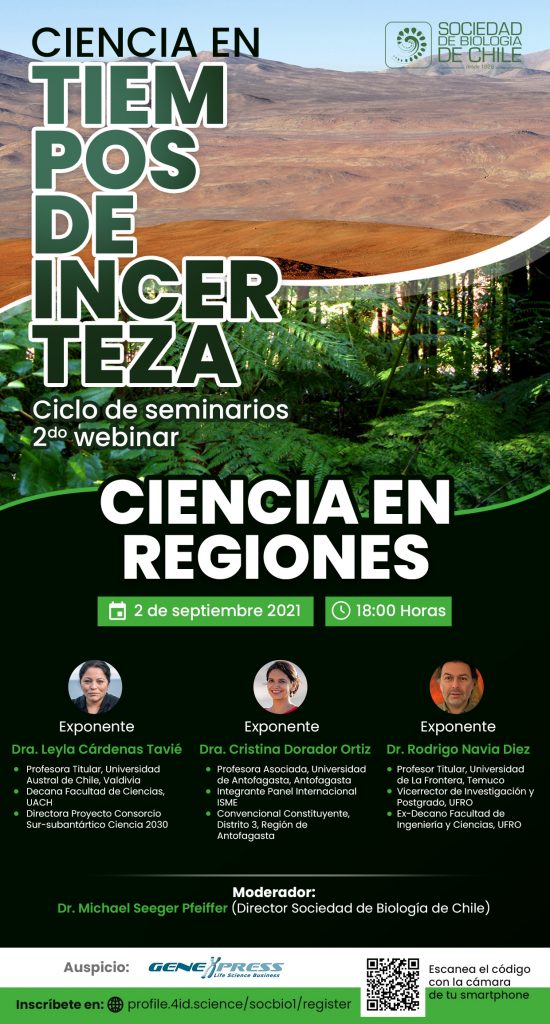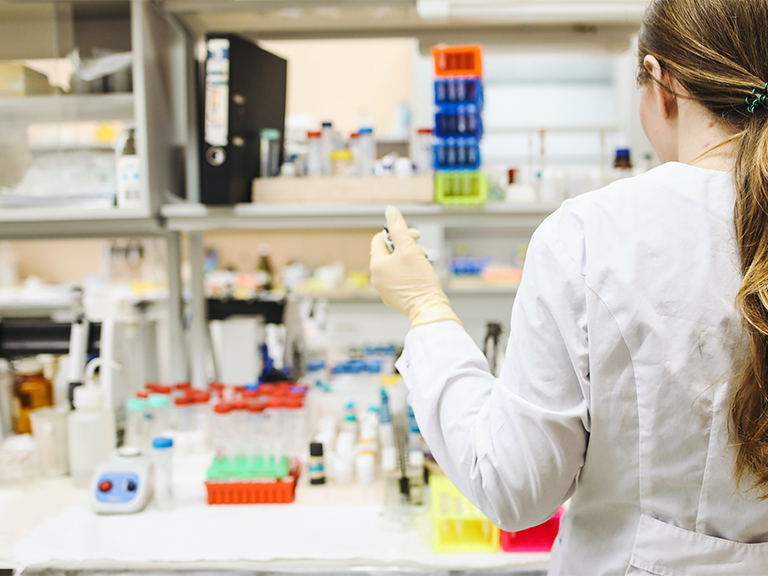Estimado(a) Socio(a):
Tenemos el agrado de enviar el segundo comunicado acerca de la XVII Reunión Anual de nuestra Sociedad, que tendrá lugar en formato remoto.
Esperamos contar con su participación y la de sus estudiantes, la que sin duda contribuirá a dar realce a nuestra XVII Reunión Anual.
El idioma oficial de este congreso será el inglés, por lo que los resúmenes y paneles deben ser escritos y presentados en ese idioma.
En relación a las comunicaciones libres se sugiere indicar el modo de presentación (oral o poster). Sin embargo, el Comité Organizador definirá finalmente la modalidad de presentación.
PLAZO PARA RECEPCIÓN DE LOS RESÚMENES
Comunicaciones Libres, Poster, Conferencias y Simposios: 14 de octubre
El resumen se debe enviar a la plataforma que se habilitará a partir del 27 de septiembre en https://play.4id.science/neuroc6
COSTOS DE INSCRIPCIÓN Y ENVÍO DE RESÚMENES
Simposiantes y conferencistas internacionales: Liberados de pago
Estudiantes de pre y postgrado: Liberados de pago
Socios e Investigadores postdoctorales: $20.000 | US$28
No socios: $30.000 | US$40
Resúmenes: $15.000 US$20
Existirá una modalidad de registro “LABORATORIO” que permitirán incluir número ilimitado de participantes y resúmenes (del mismo laboratorio) por un costo de $120.000 (US$ 160)
PROGRAMA
Symposia
1.- Rare genetic diseases and their impact on neurodevelopment and CNS function.
Coordinator: Maria Paz Marzolo
- Victor Faundez, “Systems Biology of rare neurological disorders”. Department of Cell Biology, Emory University, Atlanta, USA.
- Bredford Kerr, “Environmental enrichment as a bypass to attenuate the progression of Rett syndrome-like phenotype in a mouse model of the disease”. Centro de Biología Celular y Biomedicina. Facultad de Medicina y Ciencia. Universidad San Sebastián, Chile.
- María-Paz Marzolo, “The AP-4 adaptor complex, mutated in Hereditary Spastic Paraplegia, has ApoER2 as a new cargo with relevant neuronal functionsDepartment of Cell and Molecular Biology. Faculty of Biological Sciences. Pontificia Universidad Católica de Chile, Chile.
- Hugo J Bellen, “Fly tools and approaches to study neurological rare and common human diseases”. Departments of Molecular and Human Genetics and Neuroscience. Texas Children Hospital. Baylor College of Medicine, USA.
2.- Ecological Cognitive Neuroscience: moving towards real-life Science.
Coordinator: Rodrigo Montefusco; María de los Ángeles Juricic
- Rodrigo Montefusco, “How valid are our experimental conclusions in real life?”. Faculty of Medicine, Center for Interdisciplinary Studies on Nervous System (CISNe). Universidad Austral de Chile. Chile.
- Paul Matusz, “Bridging past and future in education: Integrating multisensory models of brain and cognition with naturalistic laboratory research”. Hearing & Speech Sciences, Vanderbilt University, Nashville, TN, USA
- Jacqueline Snow, “Why realism is important for understanding human brain and behavior”. Department of Psychology at the University of Nevada, Reno. USA.
- Francisco J. Parada, “MoBI meets 4E cognition: getting ready for real-world neuroscience”. Facultad de Psicología, Universidad Diego Portales. Chile.
3.- Microexons and Central Nervous System Development.
Coordinator: Maria Estela Andres / Paola Haeger
- Manuel Irimia., “Parallel evolution of neural microexons in insects and vertebrates”. Centre for Genomic Regulation, Barcelona Institute of Science and Technology, Barcelona. España.
- Paola Haeger, “Cognitive impairment induced by prenatal ethanol exposition: New
insights into gene expression dysregulation”. Departamento de Ciencias Biomédicas, Facultad De Medicina, Universidad Católica Del Norte, Coquimbo, Chile.
- Elena Battaglioli, “Microexon contribution to environmental-stress adaptation: the
interesting case of LSD1”. Department of Medical Biotechnology and Translational
Medicine, Università degli Studi di Milano-Via Fratelli Milano. Italy.
4.- Mente, Cerebro y Educación.
Coordinator: Paulo Barraza
- Elena Salillas, “Redes cerebrales tras la aritmética simple: evidencia de magnetoencefalografía”. Universidad de Zaragoza, España.
- Marcela Peña, “Tecnologías interactivas para apoyar el desarrollo del lenguaje en pre-escolares”. Pontificia Universidad Católica de Chile, Chile.
- Cecilia Calero, “Enseñar… ¿Cómo y para qué?”. Universidad Torcuato Di Tella, Argentina.
- Paulo Barraza, “El Cerebro del Profesor: bases neurocognitivas de la docencia experta”. Universidad de Chile, Chile.
5.- Young Neuroscientist Symposium.
Coordinator: Patricio Orio
6.- Brain aging and glial cells – When neuroinflammation shapes brain function.
Coordinator: Maite Castro / Francisco J. Rivera
- Flavia E. Saravia, “Microglia in the context of aging and Alzheimer’s disease”. Faculty of Exact & Natural Sciences, University of Buenos Aires. Argentina.
- Ludwig Aigner, “Targeting Brain Rejuvenation for the Treatment of Dementia”. Spinal Cord Injury and Tissue Regeneration Center Salzburg (SCI-TReCS), Institute of Molecular Regenerative Medicine, Paracelsus Medical University Salzburg, Austria.
- Saul Villeda, “Systemic mechanisms of brain rejuvenation” Endowed Chair in Biomedical Sciences, School of Medicine, University of California, San Francisco. USA.
7.- Molecular basis of memory and depression.
Coordinator: Jimmy Stehberg
- Irit Akirav, “Targeting the endocannabinoid system in stress-related disorder”. Department of Psychology, Haifa University, Haifa. Israel
- Aline Desmedt, “A molecular switch in the transition from normal to PTSD-like fear memory”. Neurocentre Magendie, INSERM U1215. Bordeaux University. France.
- Jimmy Stehberg., “Role of astrocytes in memory and depression”. Instituto de Ciencias Biomédicas, Universidad Andrés Bello, Santiago. Chile.
- Kobi Rosemblum. “New inhibitors for QR2 to fight neurodegeneration and AD”. Sagol Dept Neurobiology, University of Haifa. Israel.
Conference 1
Benno Roozendaal, Donders Institute. Radboud University Medical Center. Nijmegen. The Netherlands.
Title: Stress hormone effects on different aspects of memory quality.
Coordinator: Jimmy Stehberg
Conference 2
Casper Hoogenraad, Genetech, USA.
Title: Building a neuron: cytoskeleton organization and transport mechanisms’
Coordinator: Christian Gonzalez
Roundtable
Coordinator: Christian Gonzalez
“Humberto Maturana (1928-2021): Una visión sistémica de los seres vivos”
Jorge Mpodozis, “Evolución a través de la deriva del Nicho Ontológico”. Departamento de Biología, Facultad de Ciencias, Universidad de Chile.
Juan-Carlos Letelier, “Algo Necesario para entender la génesis del concepto de Autopoiesis: Las interacciones entre Humberto Maturana y Heinz von-Foerster (1963-2002)”. Departamento de Biología, Facultad de Ciencias, Universidad de Chile.
Maria de la Luz Cardenas: “Autopoiesis y Metabolismo”. Bioénergétique et Ingénierie des Protéines, Centre National de la Recherche Scientifique (CNRS), Marseilles, France.
Para mayores informaciones en: https://socneurociencia.cl/
Atentos saludos,
COMITÉ ORGANIZADOR
